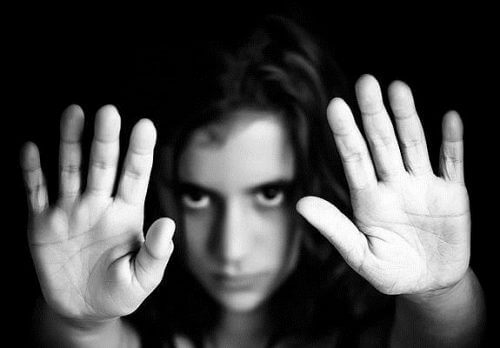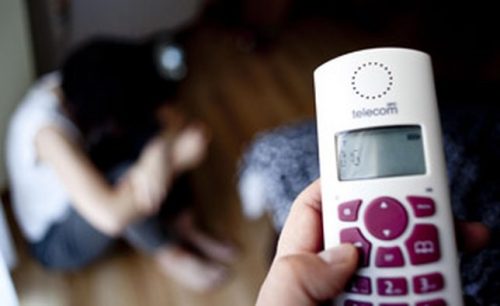5 Possible Signs that a Woman is Being Abused


Reviewed and approved by the psychologist Bernardo Peña
Abused women react a certain way to stimuli in everyday life. In this article, discover possible ways to identify when a person is being mistreated when they, for unknown reasons, feel unable to ask for help or realize what’s happening to them.
Read this too: Wounds that Never Heal: The Neuropsychology of Abused Women
Possible signs that a woman is being abused
1. They try to cover up their skin as much as possible

While many women suffer psychological abuse, others are physically abused, and sometimes the bruises happen in visible areas.
If they suddenly start wearing makeup when they normally don’t, or act bothered if you ask them to show you their arm, shoulder, or another part of their body, it’s possible they’re being abused.
How can you identify it? If you notice anxiety or worry in their attempt to hide their skin or a defensive or aggressive reaction.
2. They anticipate their abuser’s anger
Abused women live in a constant state of alert to keep the person that’s mistreating them from getting angry or displeased.
Discover: 6 Effects of Psychological Abuse that You Should Know

For example, sometimes they’ll avoid asking them about certain things. Or they may say things like, “I can’t go out with you guys because my boyfriend doesn’t like it”. Or “He works so much that he wants to spend the little time he has with me”.
We see a lack of assertiveness here, a neglect of her own needs, and a need to be in constant submission to her partner’s desires.
3. They hide information about their life
In addition, people who abuse others usually isolate their partner from their friends and family. And when they do get time with others, abused women hide a lot of information and give excuses. That way, they don’t have to say what’s really happening.
Every time they find themselves in a conversation and someone starts asking them about their life, they respond superficially and try to change the subject quickly.
This makes them live in stress and anxiety. They’re careful about every word they say in case their partner finds out and gets angry with them.
4. They’re always on the defensive
Just like they hide parts of their body, abused women are startled and scared when others brush up against them or touch them.

For example, simply touching their arm can make them jump, as if they’re always expecting an attack they’ll have to defend themselves from.
You can see this when somebody lifts their arm. Suddenly, the abused woman may cover her face as if they were about to hit her.
5. They feel burdened with responsibilities
Abused women feel like they’re the guilty ones. They often think they deserve to be hit by their partner. This translates into other areas of their life. In general, they tend to take on guilt and responsibility that doesn’t actually belong to them.
An attitude like this means very low self-esteem and a tendency to always show a submissive attitude.

These women are very fragile. Helping them is often quite difficult and sometimes impossible since they think they deserve what’s happening. Their self-esteem is so low that they end up hurting themselves by not doing anything.
However, knowing what to look for will help you to not judge. Don’t bring down a person who is already sinking even more and going through a very hard time in their life.
Abuse is still very present in our society. However, there are more and more ways to get help for women trying to get out of this kind of situation.
All cited sources were thoroughly reviewed by our team to ensure their quality, reliability, currency, and validity. The bibliography of this article was considered reliable and of academic or scientific accuracy.
- Smith, P. N., Gamble, S. A., Cort, N. A., Ward, E. A., He, H., & Talbot, N. L. (2012). Attachment and alliance in the treatment of depressed, sexually abused women. Depression and Anxiety. https://doi.org/10.1002/da.20913
- Prosman, G. J., Lo Fo Wong, S. H., & Lagro-Janssen, A. L. M. (2014). Why abused women do not seek professional help: SA qualitative study. Scandinavian Journal of Caring Sciences. https://doi.org/10.1111/scs.12025
- Harned, M. S. (2001). Abused women or abused men? An examination of the context and outcomes of dating violence. Violence and Victims.
- Campbell, J. C. (2002). Health consequences of intimate partner violence. Lancet. https://doi.org/10.1016/S0140-6736(02)08336-8
This text is provided for informational purposes only and does not replace consultation with a professional. If in doubt, consult your specialist.








